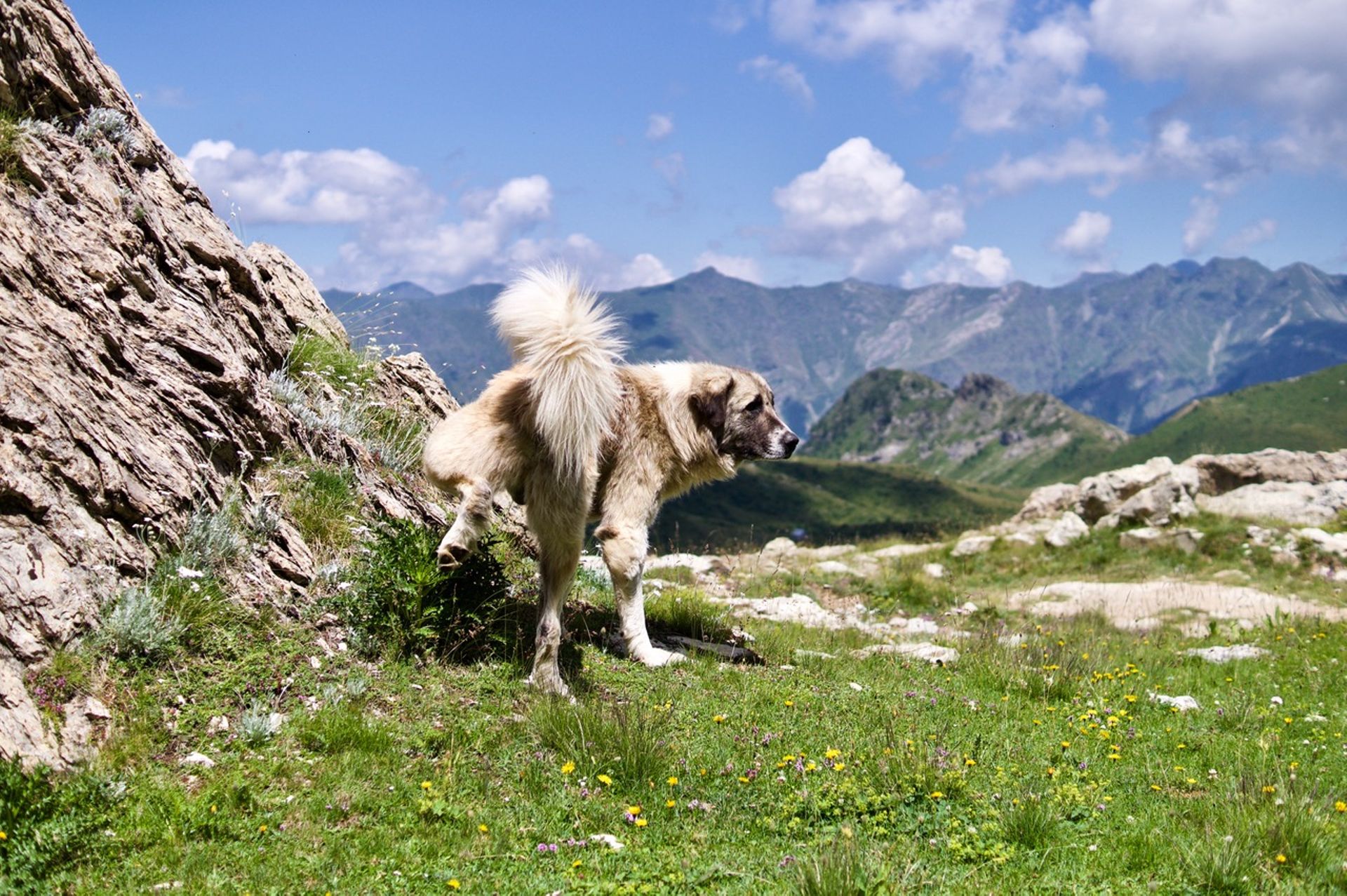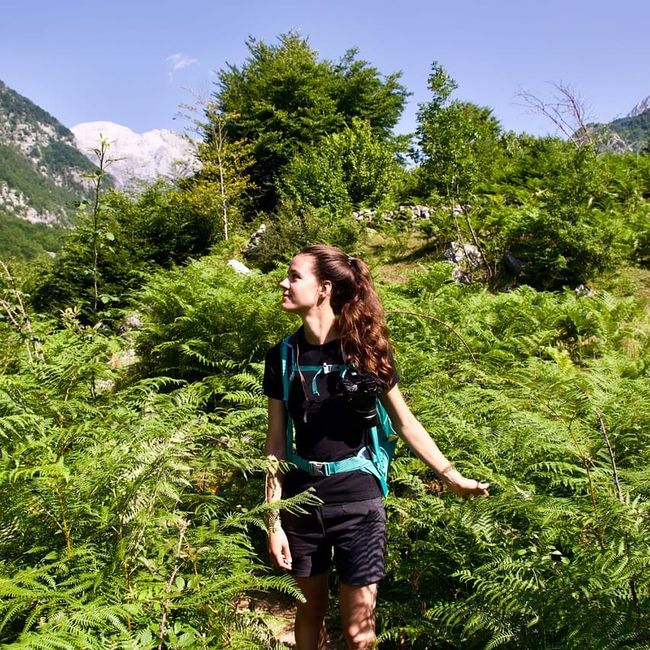Patagonia Argentina - Along Route 40
Objavljeno: 07.03.2020
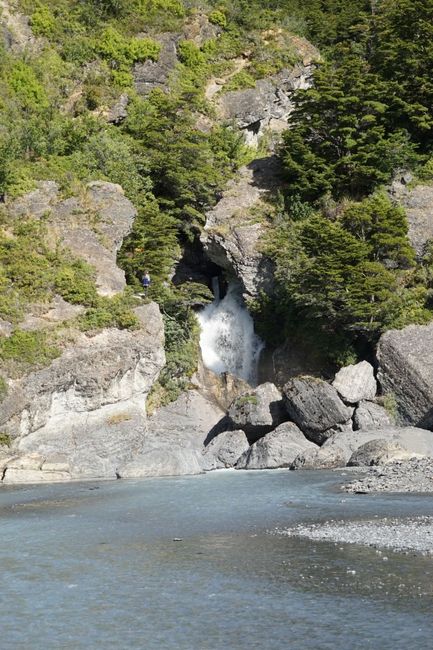
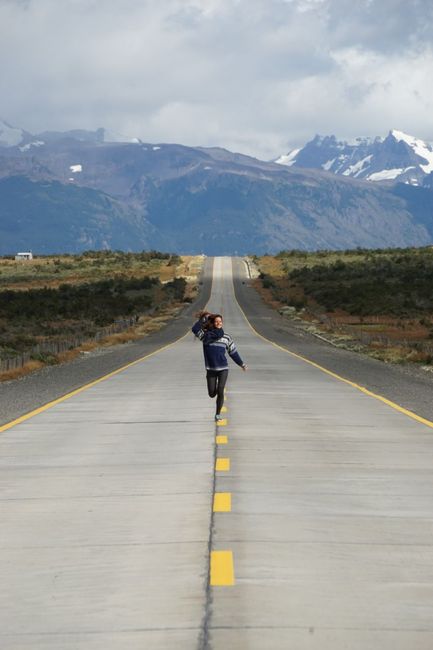
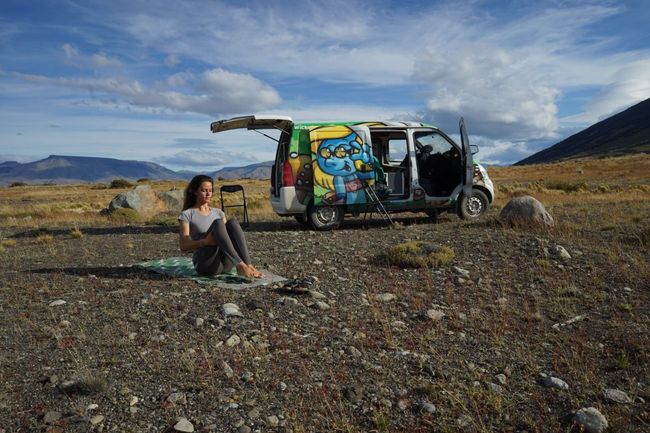
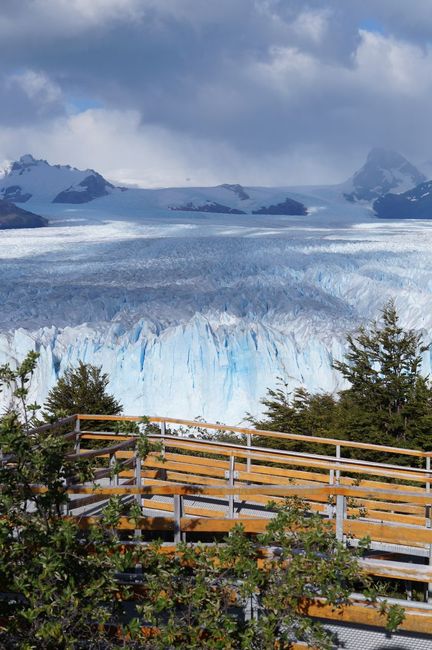
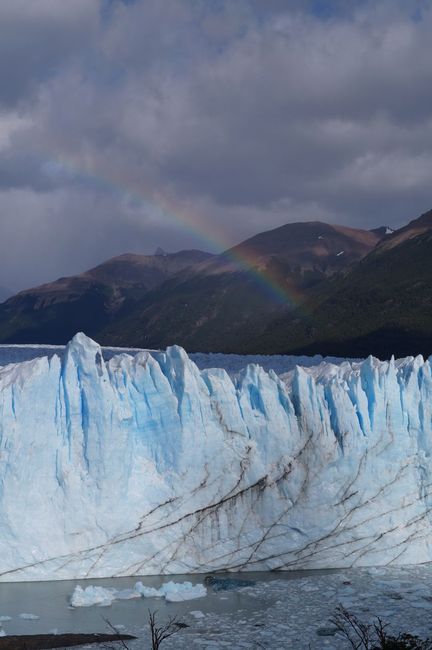
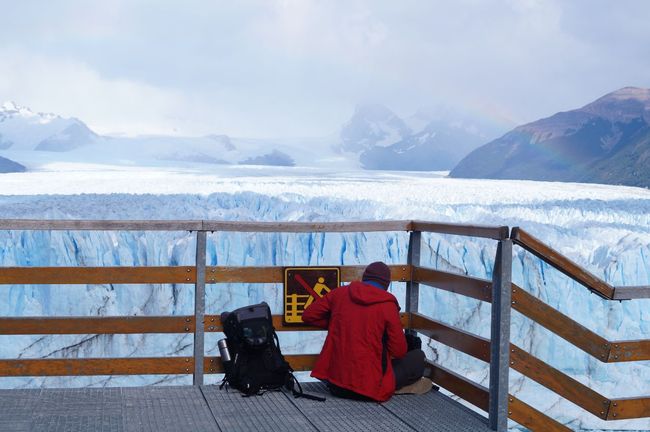
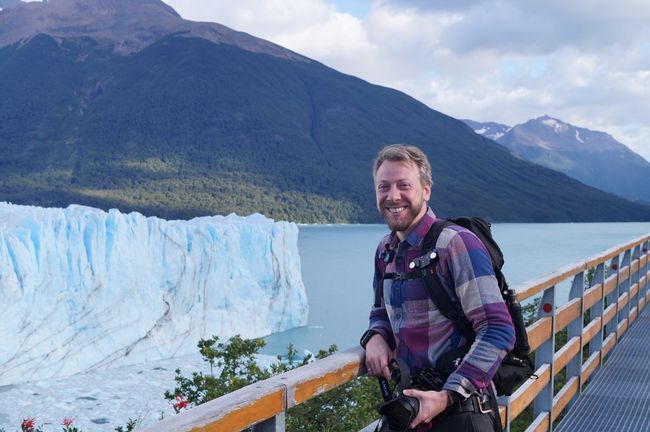
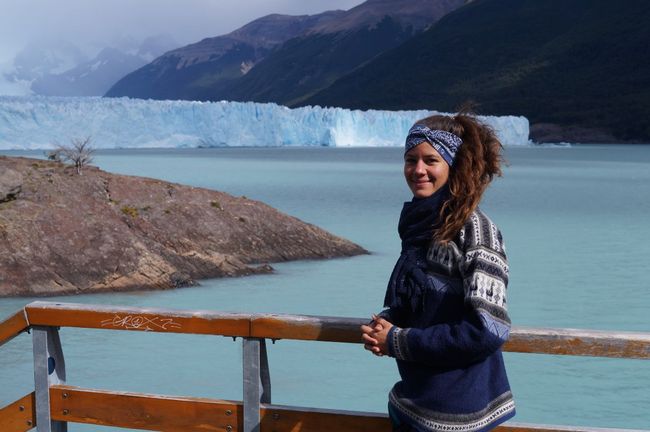
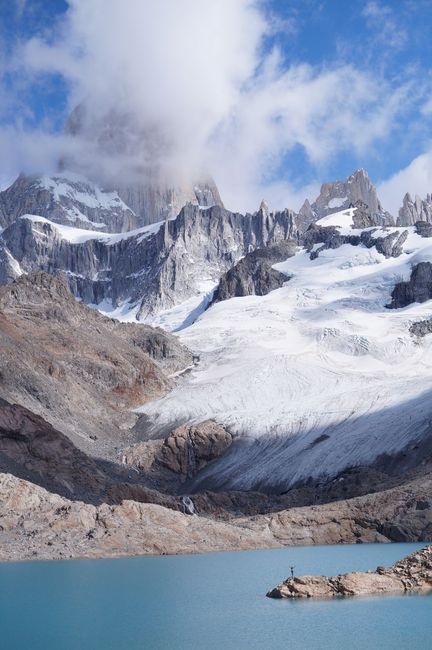
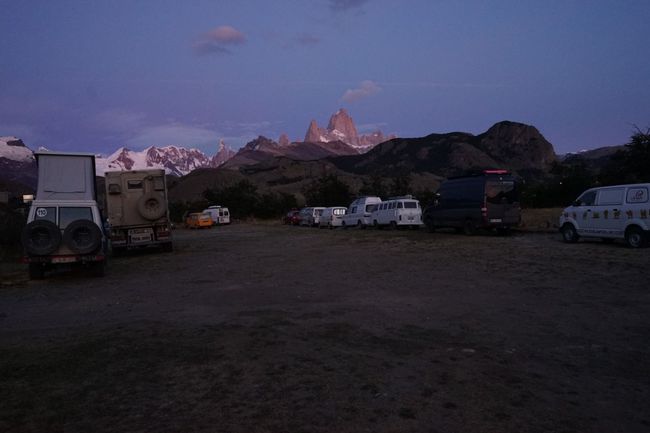
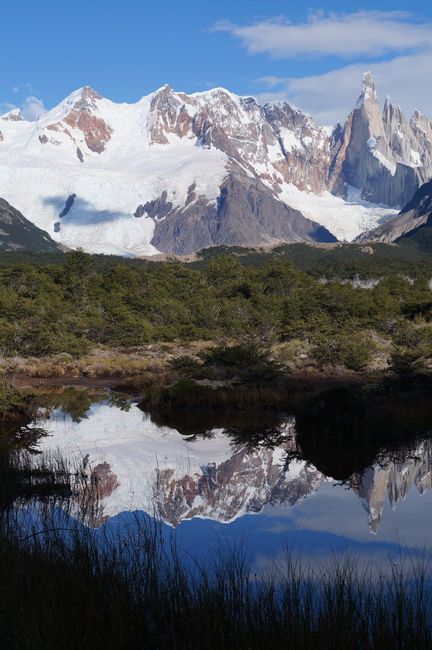
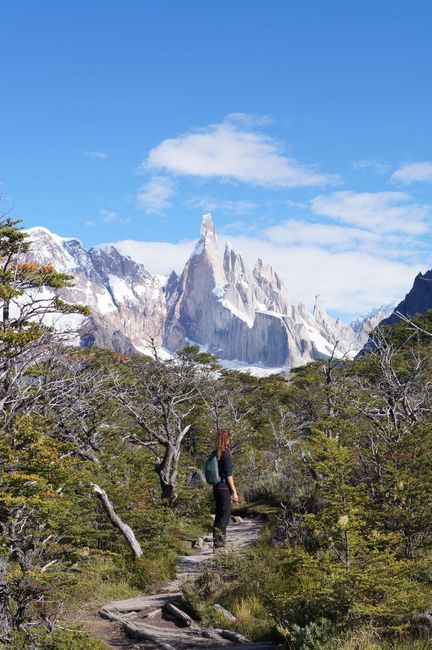
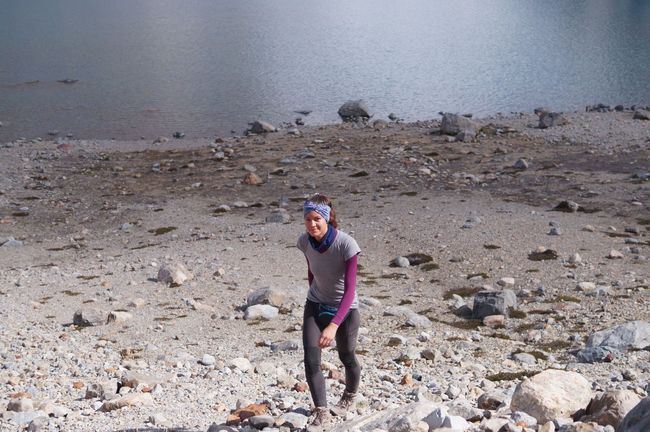
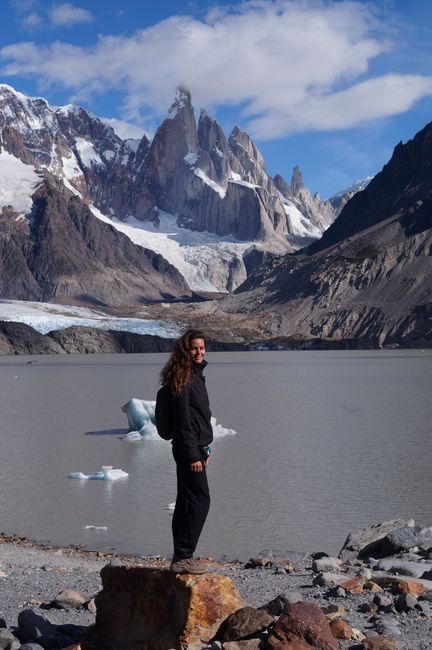
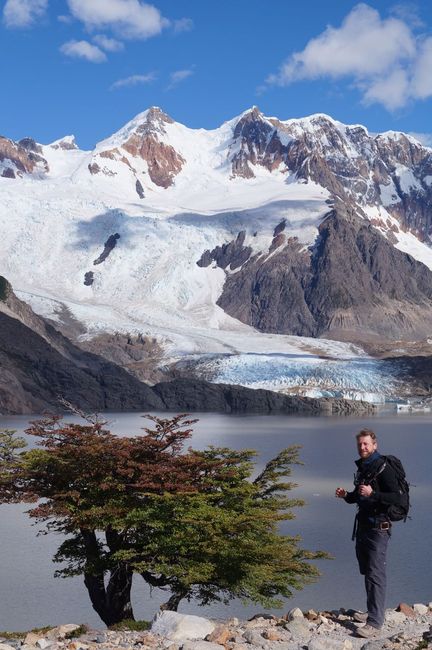
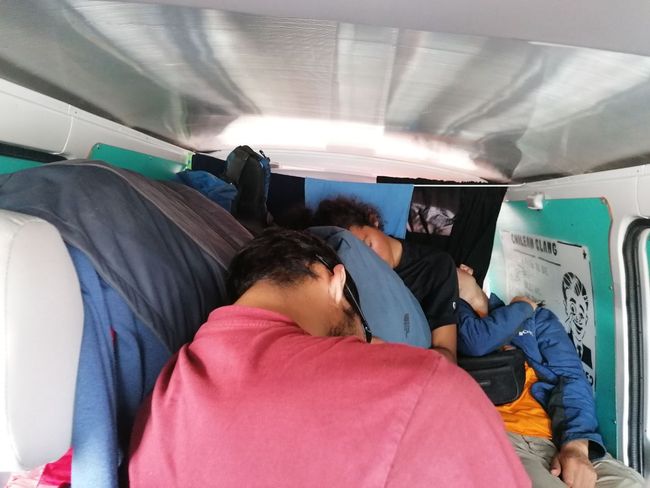
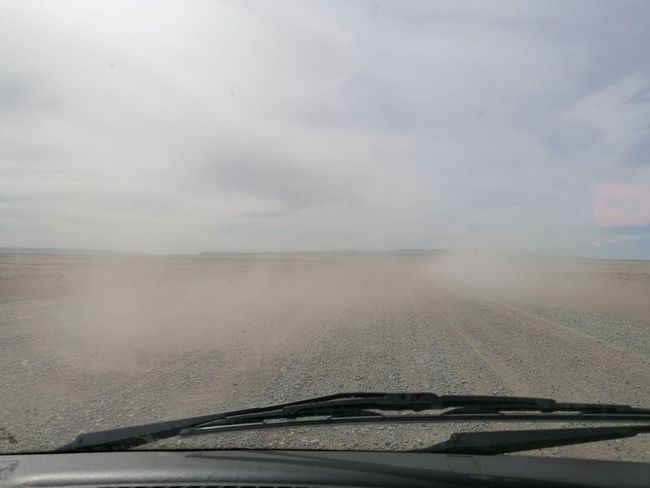
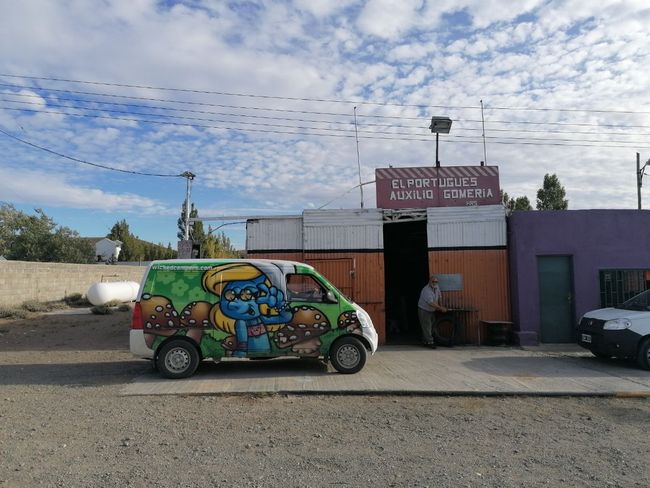
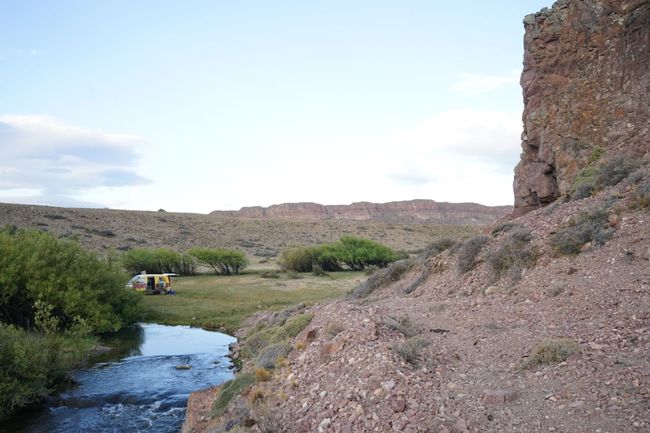
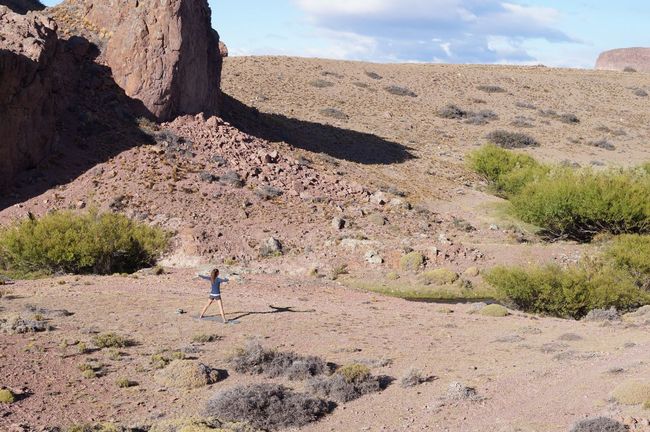
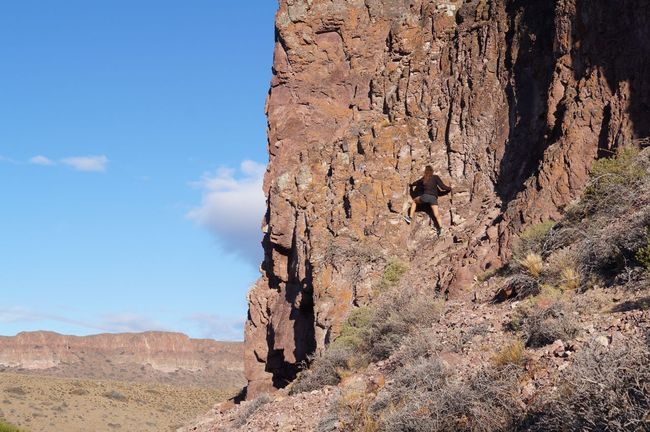
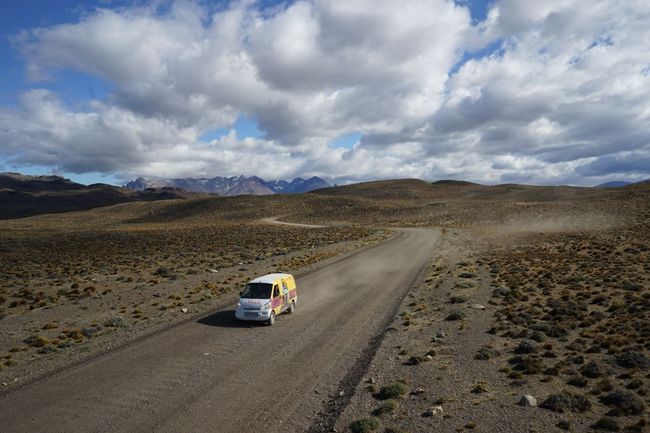
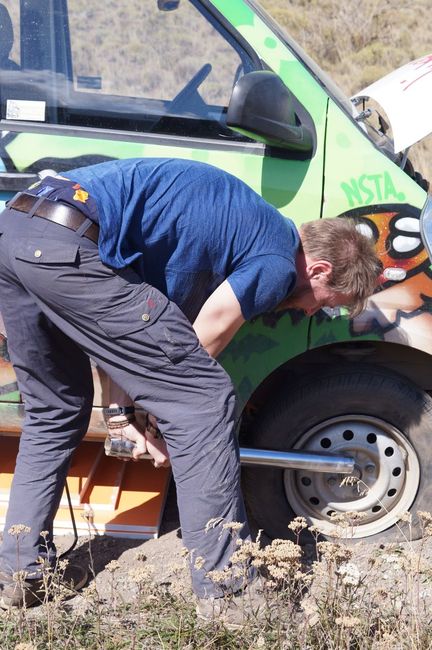
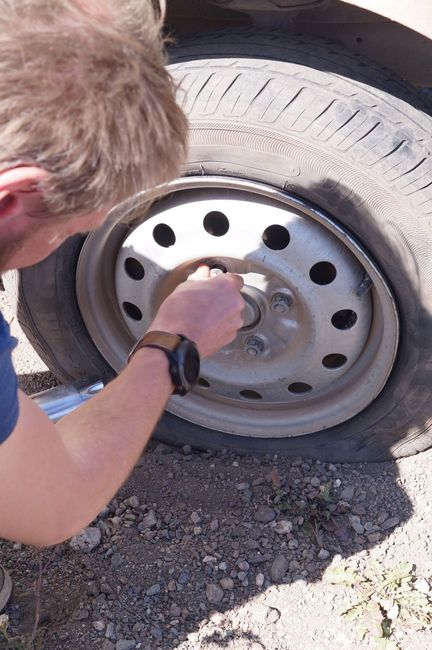
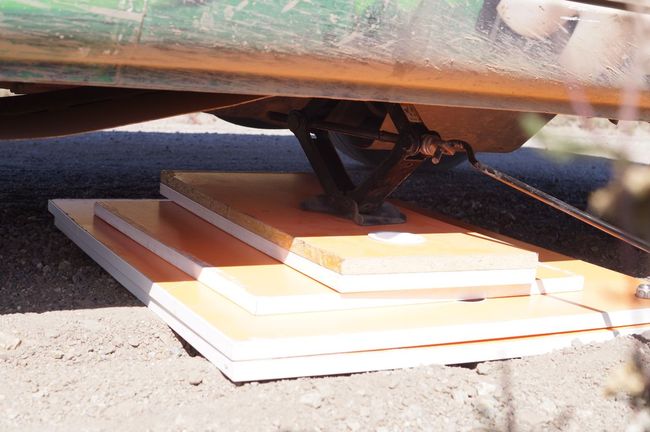
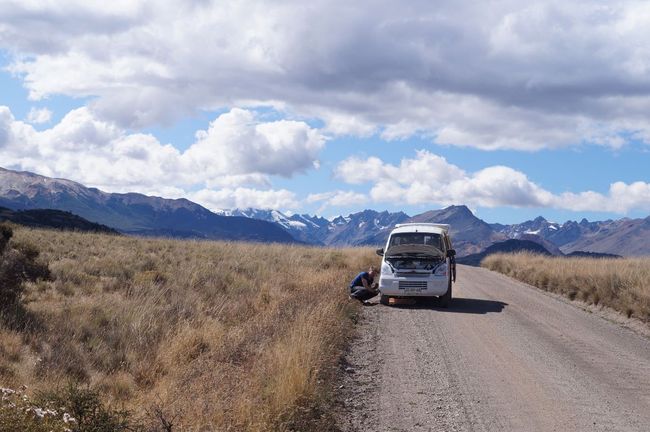
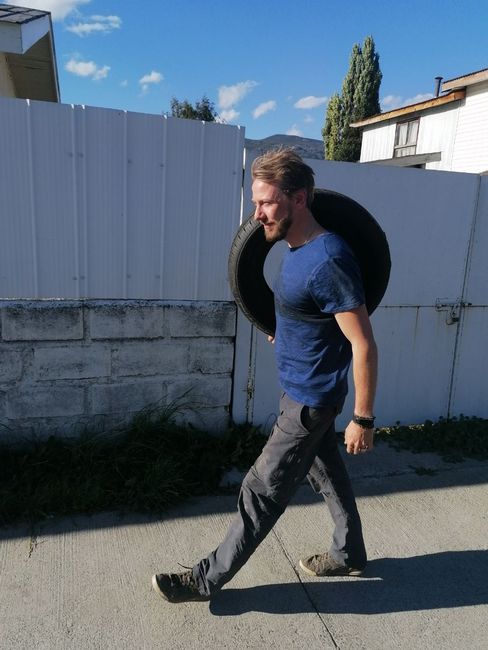
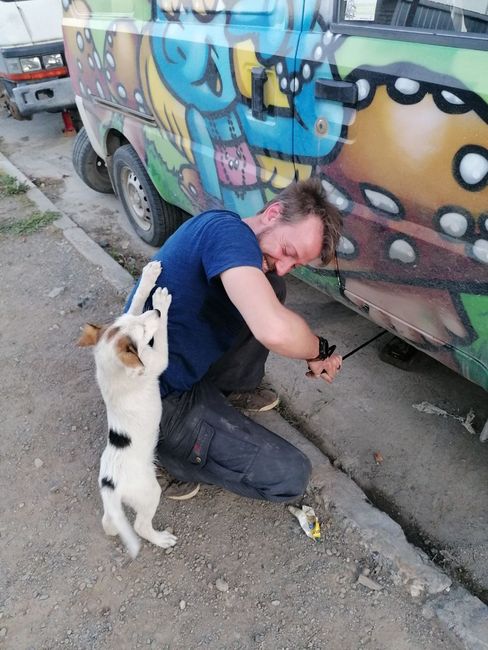
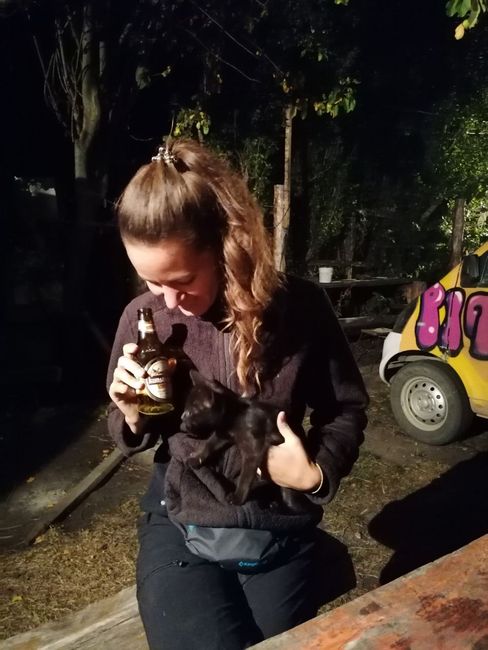
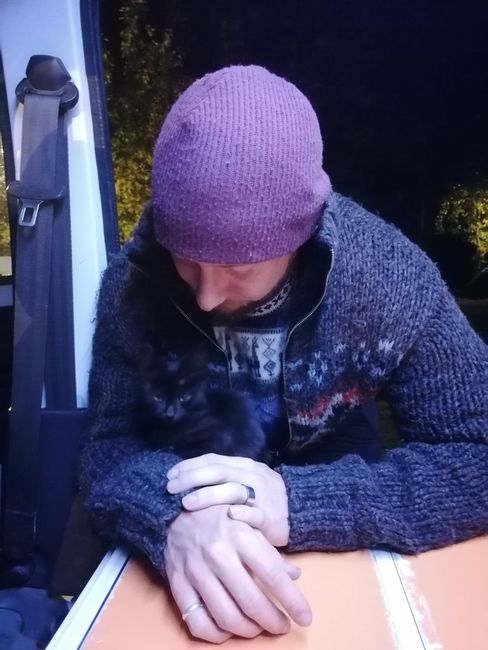
Naročite se na glasilo
Thursday, 27.02.2020
In the morning, we have a short photoshoot at the waterfall, then we head to Argentina. The landscape is vast and sparsely populated, the roads are bad. It can happen that you accidentally exit Chile illegally because you overlook a border checkpoint in a quasi nonexistent town. But the Argentine immigration authorities kindly pointed it out to us and sent us back. We simply did not recognize the three parked cars and the closed barrier on one side of the road as an official border. Fortunately, they are very forgiving with us foolish tourists.
On the Argentine side of the border, the fun begins with an even worse gravel road and a lot of nothing around. Because it is so sparsely populated and there is only a town every few hundred kilometers interrupting the landscape, you have to plan your refueling well and always fill up when possible. For safety, we still have 10 liters of emergency gasoline. The first gas station in Argentina is actually just a small house with a fuel pump in front of the door, and nothing but empty flatland all around.
In the evening, we arrive in El Calafate, a tourist town full of consumer traps, trendy restaurants, and accommodations. Here, it seems like there is either yawning emptiness or pure tourism. I wonder where and how the people from here live. The first stop in town is a bank so that we have cash in local currency. However, it turns out to be difficult as there seems to be a cash shortage currently (or always?). We only get a very small amount for exorbitant fees. Fortunately, you can pay with a card in many places. At the supermarket, we stock up on fruits and vegetables, beer, and other goodies, and then look for an overpriced campsite because we need a shower. On the way, we want to refill the tank, but apparently, there is not only a shortage of cash but also of gasoline.
Friday, 28.02.2020
In the morning, we made good use of the campsite's Wi-Fi, then we set off to the Los Glaciares National Park, where the Perito Moreno Glacier is located. After an hour's drive, we would have had to pay the entrance fee to the park, but the weather in the afternoon is not really great and we want to have a good view of the glacier. Therefore, we turn back and look for a spot in the open nearby. A hundred meters from the road, but not visible from there, we spend the afternoon and evening all alone in a beige-brown, dry steppe landscape. We have a relaxed time with yoga, learning Spanish, reading, and watching the clouds move. At night, another car joins us, and we have a nice chat with the German couple over a glass of wine.
Saturday, 29.02.2020
Our neighbors have already left shortly after sunrise, while we take it a bit more relaxed. When 'pulling out' of the steppe spot, I, or rather our front tire, get stuck in a hole, from which Ben heroically has to free us. With the help of a floor mat, the spinning rear tire regains traction, and we fight our way out.
In the national park, we can drive almost to the glacier by car. From the parking lot, a network of wooden paths and viewpoints leads to just a few hundred meters away from the glacier's edge, and we can admire it from all sides. This also counts as our daily exercise since we have to climb up and down numerous steps on the wooden paths. The glacier wall towers in front of us, huge and with deep, fearsome crevices. The ice shines white and bright blue, and in some places, you can see a marbled pattern of deposits. There is frequent creaking and cracking as loud as thunder, but only occasionally do you see small pieces of ice break off and plunge into the water. In reality, the pieces are not so small and they create substantial waves. The size of the icebergs becomes insignificant compared to the mightiness of the glacier. We feel very small.
On the way back in the afternoon, we spend some more time in El Calafate and try, more or less successfully, not to fall into the consumer traps. Then we head directly to the next town, El Chaltén. We arrive there shortly before sunset and explore the town. It is smaller but similar in terms of being focused on tourism. Camper vans are allowed to park in a parking lot at the town entrance, so we join about 10 other vans and plan to cook something warm. However, the wind is very strong here as well and it also stirs up a lot of sand. So we end up cooking some pasta with sauce inside the camper and soon after eating, we go to bed very tired.
Sunday, 01.03.2020
Originally, we wanted to do the easier of the two well-known hikes here, but in the morning, we drive somewhat confused to the wrong parking lot and end up doing the more difficult one because it would be too much effort to change again. So today, we hike the Sendero Fitz Roy, 9 km uphill and then another kilometer very steep. Our reward is a great view of a blue-gray sparkling glacier lake and the snow-covered peaks of the Fitz Roy massif. A cold wind keeps passing by, but the sun is fighting hard against the cold, and we are constantly fluctuating between sweating and freezing with the risk of getting sunburned. The trail is crowded, and we often have to make way for other tourists on the narrow paths. The way back is long and it makes us and our feet tired.
When we arrive in town, we treat ourselves to a cheap hot shower at a campsite, and then we drop off a basket full of smelly outdoor clothes at the laundromat. After that, we make use of the free Wi-Fi in town, parking the car by the roadside, having a snack, and looking at our phones. We spend the night at the same spot again, and I even manage to do some yoga before bed. However, it feels very sluggish today because I have been indulging in overeating for the past few days and don't really feel comfortable in my body.
Monday, 02.03.2020
We wake up for sunrise and are promptly rewarded with a beautiful view of the orange-lit summit of Fitz Roy. Today, we head to the other hiking trail, Laguna Torre, early in the morning to avoid the tourist crowds. The trail is rather flat but rocky and leads through sand, forest, and a bog along a river. The Cerro Torre - a thin, pointed rock needle that rises lonely into the sky - is always in sight. The scenery looks like a Bob Ross painting. At the destination, there is another glacier lake with small icebergs, which we circle for a better view of the glacier. After taking a few photos, we return the same way and then pick up our laundry from the laundromat.
On our way, we repeatedly encounter the same cars and people since there is basically only one route here and everyone is driving from attraction to attraction either north or south. There are also quite a few hitchhikers, so we pick up two more on our way further north and drive to the small town of Tres Lagos. There is hardly anything to see here, but there is a gas station and an ATM. We spend the night on a side street by the river.
Tuesday, 03.03.2020
In the morning, we refuel here and also take a shower at the gas station, unsuccessfully visit the local bank, and then continue with three carefully stacked hitchhikers in the back for several hours through the wilderness. There is actually nothing here except steppe, guanacos, and an armadillo. The hitchhikers are overjoyed as they have been waiting by the roadside for three hours already without success. Back on the wooden planks in the back of the car, it is actually too tight and uncomfortable, but the guys settle in without complaining and sleep for most of the journey. I use the time to read and write in my diary, and Ben is once again the driver today. Most of the road is rough gravel, it is loud, and everyone gets shaken up a lot.
At a crossroads with a 5-house village, we drop off the hitchhikers as we want to take the next turn towards the border. As inconspicuous as the place may be, there is a gas station and a workshop that helps us replace our defective light bulb. We can't remove the headlight ourselves due to a lack of tools. After that, the rest of our Argentine cash is gone, but tomorrow we will already return to Chile.
After cooking up our remaining vegetables (wraps with salad and eggplant), we head towards the border at sunset, over another 70 km of washboard road. There is simply no good speed that makes the shaking somehow more pleasant. Poor car.
Wednesday, 04.03.2020
Last night, just before the border to Chile, we found a beautiful spot by the river where we wake up to the sunrise today. We take a look around and I do some yoga, then we continue on the gravel road to the Argentine border post. We interrupt the officer during his lunch break as he is holding the fort alone here. The departure goes quickly. The no man's land between the border posts stretches over 11 km and becomes more beautiful with every kilometer. The Chilean border is twice as well staffed with two people, and they are very friendly and helpful here. We have to surrender our ginger, which we haven't used. We could have just lied, but I actually like to stick to the rules.
On the Chilean side, we continue to be shaken until the car suddenly pulls strongly to the right after a photo stop. The tire is flat. It is still 70 km of gravel road to the next town, and there is very little traffic here. Both cars that pass by offer their help. But fortunately, we manage to change the tire ourselves, even though Ben meanwhile swears loudly about the too short jack, the screws that are tightened too tightly, and the poor quality tools.
Half an hour later, we continue bumping along, pick up another hitchhiker, and end up in the small, quiet town of Cochrane. There, we head straight to the tire shop for a repair because we don't want to be without a spare tire on these roads. We are redirected to buy a new tire as the old one is junk. However, the tire shop doesn't have the right size, so after a brief discussion with the rental company, we take a wider one and have it mounted on the rim by the tire shop. The bank once again refuses to give us cash, and after this long day, our nerves are frayed. It doesn't help that the chosen restaurant serves bad and overpriced food, so we drive annoyed to the campsite in town. The owners are friendly and immediately want to give us a kitten, which already loves us a lot - that greatly improves the mood. We buy some beer for Ben and some sweets for me, and then everything is right in the world again.
Naročite se na glasilo
Odgovori (1)
Alfred
Liebe Lena,
hab gerade Deine letzten drei Reisebericht verschlungen... wie immer: very exciting!
3 Punkte sind mir besonders aufgefallen:
A) Euer witzig bemalter Schlumpfinen-Van
B) Beeindruckende Gletscherbilder
C) Du kennst Bob Ross 🙂
Gute Weiterfahrt
Al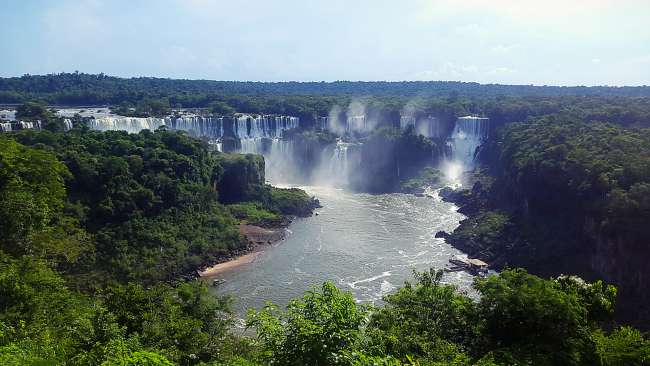
Poročila o potovanjih Argentina
